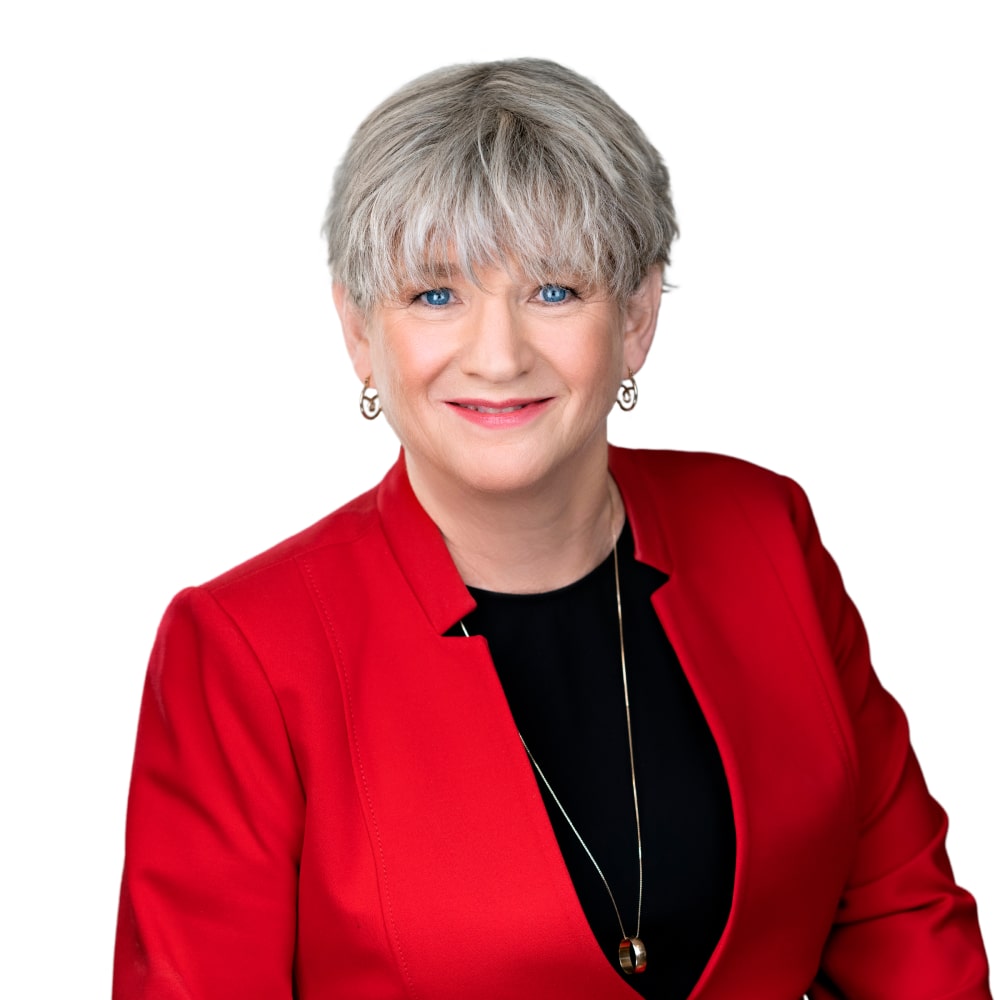In my series of interviews, I decided to meet the director of Logistics, Maria Komourdjian. Maria has taken a step up within the Logistics department, while the vice president, Karen Roach, has taken a temporary relocation assignment to be the general manager of one of our mills!
Maria has been working for Resolute for about 12 years. She started in Transportation and Logistics, but she originally applied for a Procurement position, fitting with her prior background. The Resolute hiring committee recognized her talents would be better off in the logistics world, and they were right! Maria is a curious person, and she had no problem asking all the right questions, helping her amass knowledge, which proved to be helpful in boosting her through the corporate ranks.
As Maria looks back on her progression through the company, she has noticed that with each additional tier, she has gained more responsibility and advanced her whole industry understanding. I learned from her that the higher up in a company you get, the broader your perspective usually becomes. One of these different viewpoints she has needed to consider is legislative requirements and government regulations. Over the past couple of years, she told me the biggest regulations that came to mind were the Canadian Transportation Act (and its effect on railways) and Vaccine Mandates in Canada and the United States (and how they affected truckers). Understanding different pieces, and how they fit together, is imperative for someone in a director-level position.
I asked Maria what a typical day looks like for her. She finds that her day includes a long list of things to accomplish, but by the end of the day, that list has grown. No day is ever the same, but most days have a combination of meetings, short-term deliverables, and plugging-and-playing by facilitating cooperation between her managers. What I have found is that when working at Resolute, your day is going to be packed, regardless of your department. If you thrive on being busy, Resolute’s corporate environment is a great setting for you! “Eating the elephant one bit at a time” is the best way to succeed in the Resolute workspace.
One piece of the job that Maria finds to be exciting is the networking aspect. The world of Logistics and Transportation is a very human industry, so building up relationships between the company and its carriers is an imperative task. One of the hardest parts of Maria’s job is the broad scope of knowledge necessary for success. There is a lot in the transportation landscape that is uncontrollable due to the human nature of the job. Although the goal is always to succeed, things fall apart, so it is sometimes difficult to see the positives and regroup. One of these critical experiences was maintaining the company’s operations through the COVID-19 pandemic.
The newest term that everyday people have been routinely using is “supply chain,” and working in Logistics gives forestry industry employees direct exposure to the supply chain. COVID-19 brought many unforeseen issues to the surface in the logistics sector. At Resolute, Maria had to help the mills (as essential manufacturers) with their transportation needs, so they could keep manufacturing various forest products, instead of shutting down due to a lack of space. An immediate issue was figuring out how to transport the product across the United States border. Because Canada and the United States are two different countries with different policymakers, they often have slightly different rules and regulations in place, and this was no different during the COVID-19 pandemic. As Canadian trucks hauled products across the border at the beginning of the pandemic, rest stops, restaurants, and other necessities for those truckers shut down.
Maria had the task of working with carriers, getting them to transport the product down to American warehouses. However, due to the lack of available infrastructure in the U.S., this posed many difficulties. Additionally, when everything started to get back on track in the U.S., Canada tightened up in the fall of 2020. This posed similar issues, just on the Canadian side of the border! Now, as the world is opening back up, staffing shortages are present in the supply chain, causing us at Resolute to adjust our network. Ultimately, problems always arise in the world of logistics, and it is important to be able to think critically to solve them.
Maria’s final point in my interview of her was that we all have our own realities on the ground. Therefore, it is important that where I am at Resolute’s central corporate office, we have to listen to each individual mill, because there is no such thing as a “best practice” due to every person and mill’s unique experiences. I will be discussing this further in my next piece, explaining a day in the life of my work in the Logistics department, and an example of a problem that has come up recently that we have had to solve. Thank you for reading!














